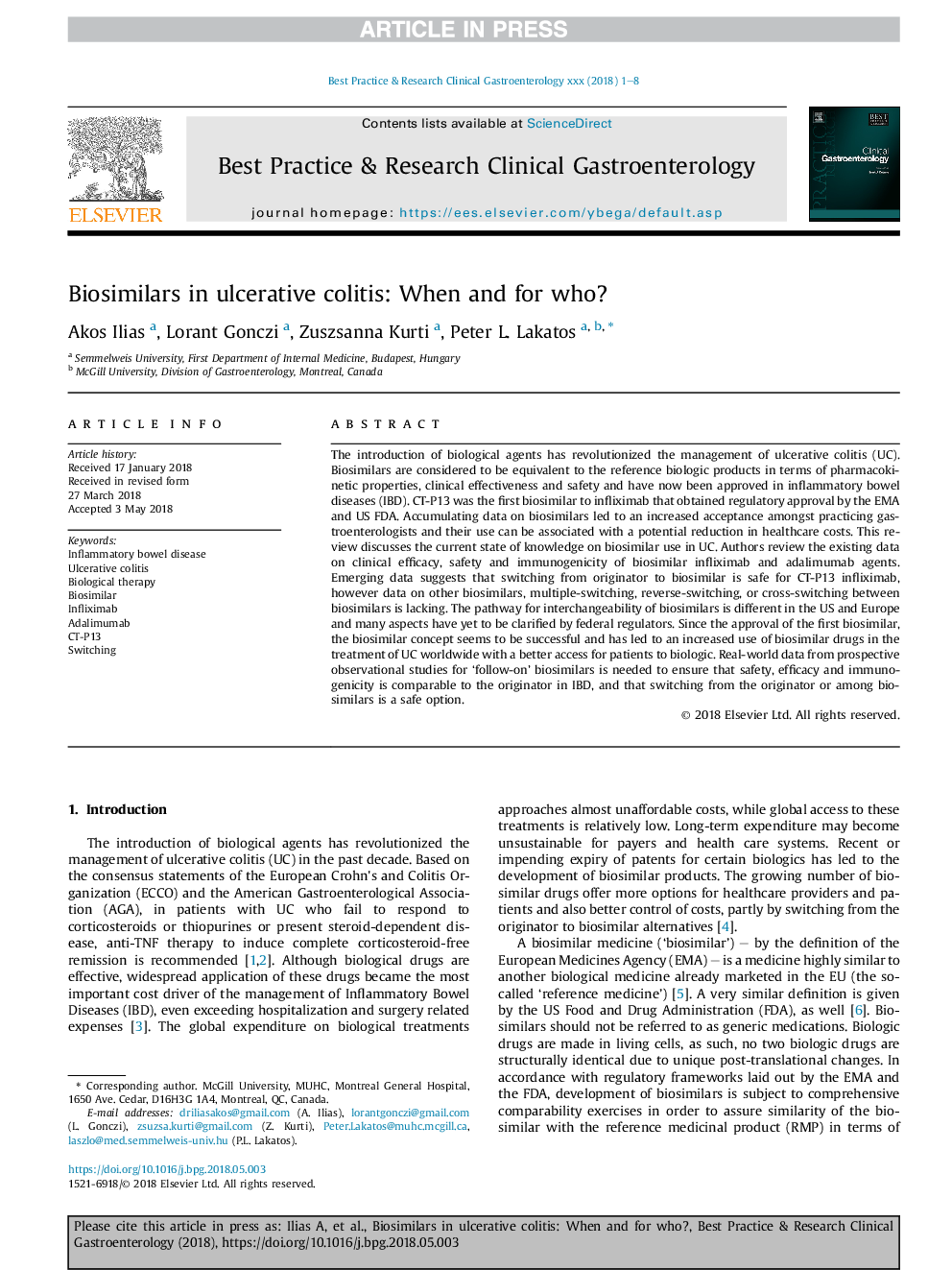| Article ID | Journal | Published Year | Pages | File Type |
|---|---|---|---|---|
| 8720622 | Best Practice & Research Clinical Gastroenterology | 2018 | 8 Pages |
Abstract
The introduction of biological agents has revolutionized the management of ulcerative colitis (UC). Biosimilars are considered to be equivalent to the reference biologic products in terms of pharmacokinetic properties, clinical effectiveness and safety and have now been approved in inflammatory bowel diseases (IBD). CT-P13 was the first biosimilar to infliximab that obtained regulatory approval by the EMA and US FDA. Accumulating data on biosimilars led to an increased acceptance amongst practicing gastroenterologists and their use can be associated with a potential reduction in healthcare costs. This review discusses the current state of knowledge on biosimilar use in UC. Authors review the existing data on clinical efficacy, safety and immunogenicity of biosimilar infliximab and adalimumab agents. Emerging data suggests that switching from originator to biosimilar is safe for CT-P13 infliximab, however data on other biosimilars, multiple-switching, reverse-switching, or cross-switching between biosimilars is lacking. The pathway for interchangeability of biosimilars is different in the US and Europe and many aspects have yet to be clarified by federal regulators. Since the approval of the first biosimilar, the biosimilar concept seems to be successful and has led to an increased use of biosimilar drugs in the treatment of UC worldwide with a better access for patients to biologic. Real-world data from prospective observational studies for 'follow-on' biosimilars is needed to ensure that safety, efficacy and immunogenicity is comparable to the originator in IBD, and that switching from the originator or among biosimilars is a safe option.
Keywords
Related Topics
Health Sciences
Medicine and Dentistry
Endocrinology, Diabetes and Metabolism
Authors
Akos Ilias, Lorant Gonczi, Zuszsanna Kurti, Peter L. Lakatos,
